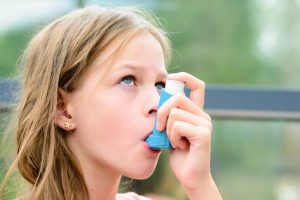
“There may be interventions that can help mitigate these risks, although we do not specifically identify any,” McGeachie added.
For the study, the researchers followed nearly 700 children up until the age of 23. Children were randomly assigned to either receive 200 micrograms of budesonide twice a day, 8 milligrams of nedocromil twice a day, or a placebo. The children were also given a rescue medication for asthma flares.
The volunteers reported to researchers yearly to have their lung function checked through a test that involves how much air a person can breathe out in one second.
By the end of the study, 11 percent of young adults suffered from COPD. Aside from having asthma, other risk factors for the development of COPD included being male and having poor lung function.
The researchers found that treating asthma did not reduce the risk of declining lung function, and at least 75 percent of the volunteers showed early decline in lung function and reduced lung growth.
Dr. Alan Mensch, chief of pulmonary medicine at Northwell Health’s Plainview Hospital, said that “asthma is a common condition of childhood where airways which transport air to the lung sacs can be triggered to spasm and narrow.”
“The results of this study help us to identify asthmatic children who will go on to develop COPD as adults. Future studies will be necessary to determine if there are any treatments that can be taken to prevent this progression,” Mensch concluded.
Also, read Bel Marra Health’s article on Tips to manage asthma and allergies.